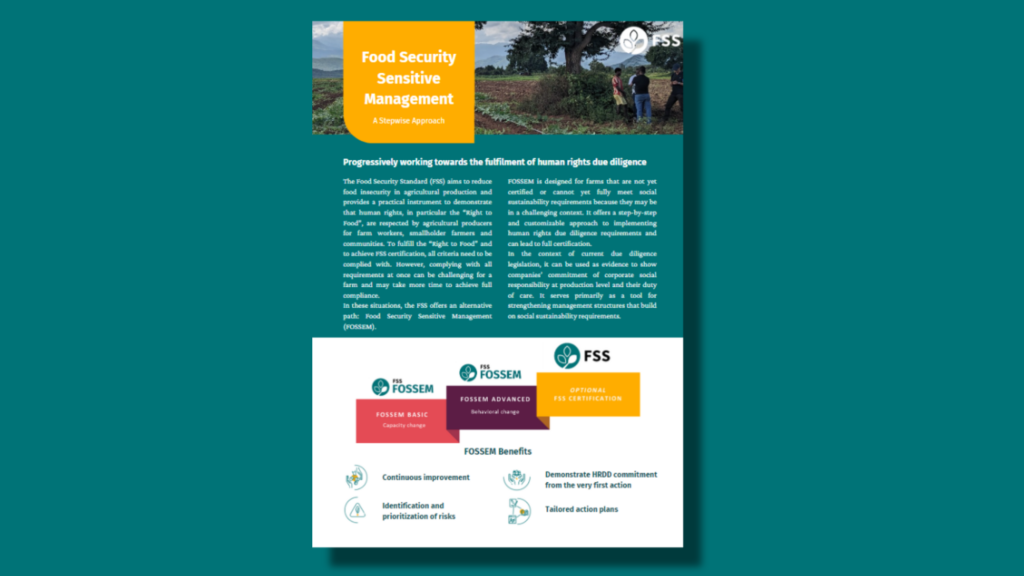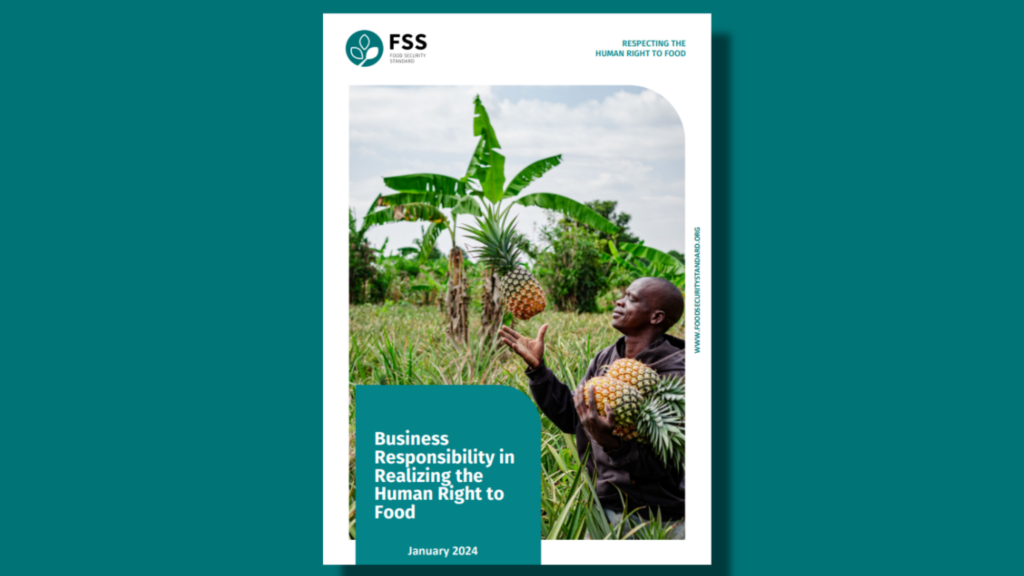FSS Publications

The Food Security Standard – Ensuring social sustainability in agricultural production
The Food Security Standard aims to support the private sector’s effort to end hunger and to improve social sustainability. It seeks to realize the right to adequate food through the responsible production and global trade of agricultural commodities.

FOSSEM – A stepwise approach
To fulfill the “Right to Food” and to achieve FSS certification, all criteria need to be complied with. However, complying with all requirements at once can be challenging for a farm and may take more time to achieve full compliance. In these situations, the FSS offers an alternative path: Food Security Sensitive Management (FOSSEM).

Upscaling the Right to Food through Certification
What happens if the Right to Food is violated in the very first step of the supply chain – where agricultural products like coffee, rubber or palm oil are grown? This happens in countries affected by hunger which produce products for global markets. The Food Security Standard (FSS) provides a solution: with this certification, the private sector can assess the local food security situation and showcase their commitment to human rights.

Business Responsibility in Realizing the Human Right to Food
Addressing food security in the production stage of the agriculture supply chain requires the participation and collaboration of the state, local communities, trade unions, civil society, as well as private businesses. However, there remains confusion regarding the extent of businesses’ responsibility and the actions necessary to fulfil this duty.

ToR for ESIA and ESMP sensitive to the right to food
An ESIA enables businesses to identify and predict their operation’s impacts, including on the food security of workers and the surrounding communities. Businesses can further develop responsible operations by conducting an Environmental and Social Management Plan (ESMP)—reflecting the right to food—to identify and develop adequate measures and controls for the risks identified by the ESIA. The Terms of Reference (ToR) aims to support those conducting tor updating the ESIA and ESMP to reflect the right to food. In addition, it can support organizations to guide businesses on ESIA and ESMP to better reflect the right to food within their guidance and materials.

Handout on the ToR for ESIA and ESMP
How to develop Terms of References for Environmental and Social Impact Assessment and Management Plan


